What I Learned About Storing Onions & Potatoes Together
Many people store onions and potatoes together out of habit or convenience, but this common practice can shorten their shelf life and lead to faster spoilage. While both vegetables prefer cool, dry, and dark environments, placing them side by side in the pantry creates conditions that accelerate decay.
Onions release ethylene gas, a natural compound that speeds up the ripening process. When stored near potatoes, this gas encourages them to sprout and soften more quickly. At the same time, potatoes give off moisture as they sit, which can cause nearby onions to become moldy or mushy.
Understanding how these vegetables interact helps you make smarter storage choices. By keeping them apart, you protect their quality, save money, and reduce food waste. Simple changes—like using separate baskets or storing one in a different part of the pantry—make a big difference.
If you’re investing time and money into buying fresh produce, storing it in a way that preserves freshness and flavor makes sense.
In this post, I’ll break down the science behind why you should never store onions and potatoes together, explain the best storage methods for each, and offer tips to help you keep your pantry organized and your produce in top shape.
So Why Not Store Onions and Potatoes Together?
Ethylene Gas from Onions
Onions naturally emit ethylene gas, a plant hormone that triggers ripening in many fruits and vegetables. When potatoes are exposed to this gas over time, they begin to sprout prematurely, turning soft and developing those green, bitter spots. Sprouted or green potatoes can not only taste unpleasant but may also contain higher levels of solanine, a natural toxin that can be harmful in large amounts.
2. Moisture from Potatoes
Potatoes have high water content and tend to release moisture as they sit, especially if not stored in an ideal environment. This excess humidity creates the perfect breeding ground for mold and rot, especially when combined with the dry outer skins of onions. Onions prefer a dry environment—too much moisture can cause them to become soft, slimy, or moldy.
3. Accelerated Spoilage
When stored together, onions and potatoes effectively sabotage each other’s shelf life. The onions cause the potatoes to sprout, while the potatoes encourage the onions to rot. What you end up with is a shorter window of usability and a higher chance of food waste.
4. Better Storage Options
Store potatoes in a cool (45–50°F), dark, and well-ventilated space—away from heat and light.
Store onions in a dry, airy space, also cool but away from potatoes and other moisture-producing foods.
Keeping them apart helps maintain their texture, flavor, and freshness for weeks longer.
What About Garlic or Ginger?
Garlic and ginger are pantry staples like onions and potatoes, but their storage needs differ slightly. Here’s how they interact and how best to store them:
Garlic:
Best storage: Cool (not cold), dry, dark, and well-ventilated space.
Avoid: Refrigeration (it can sprout or become rubbery), plastic bags (trap moisture).
Shelf life: Several weeks to a few months if stored properly.
Ginger:
Best storage (short term): Cool, dry place—like a pantry—for up to a week.
Best storage (longer term): Refrigerator in a paper towel inside a plastic or reusable bag with some air holes.
Shelf life: A week at room temp; up to a month or more in the fridge.
Can you store garlic and ginger together?
Yes—for short periods. Unlike onions and potatoes, garlic and ginger don’t produce ethylene gas in harmful amounts, nor do they overly affect each other’s moisture levels. They won’t cause the same spoilage problems. However, to maximize freshness:
Keep them in a breathable container (like a mesh bag or basket).
Avoid direct sunlight and humidity.
For long-term storage, ginger prefers the fridge, while garlic prefers room temp, so separation is best after a few days.
Other Vegetables Sensitive to Ethylene Gas
Many vegetables you store in the refrigerator are sensitive to ethylene gas, but what about those vegetables you typically don’t store in the refrigerator? Some, like sweet potatoes, turnips, pumpkins, and watermelon, are highly sensitive to ethylene gas, so keeping them away from those high ethylene producers is essential.
Solution for Storing Fruits & Vegetables
Besides buying commercial products to reduce ethylene gases, the best solution to prevent ethylene gas from shortening the shelf life of your daily vegetables and saving you big bucks over time is to keep those that emit a large amount of this gas away from those sensitive to it as much as possible.
Here’s a quick chart to help you figure this out:
| Ethylene Producing Foods | Ethylene Absorbing Foods |
Apples Apricots Avocados (ripe) Bananas (ripe) Berries Cantaloupe Cherries Cucumbers Cranberries Figs Green onions Guavas Grapes Kiwis Mangoes Melons Papayas Passion fruit Peaches Pears Persimmons Potatoes Quince Tomatoes | Apples Asparagus Avocados (ripe) Bananas (unripe) Berries Bok Choy Broccoli Brussels sprouts Cabbage Carrots Cauliflower Chard Cucumbers Eggplants Green beans Kale Leafy Greens Leeks Melons Mushrooms Okra Parsnips Peaches Peas Peppers Prunes Radishes Salad Mixes Spinach Squash Sweet Potatoes Turnips Watermelon |

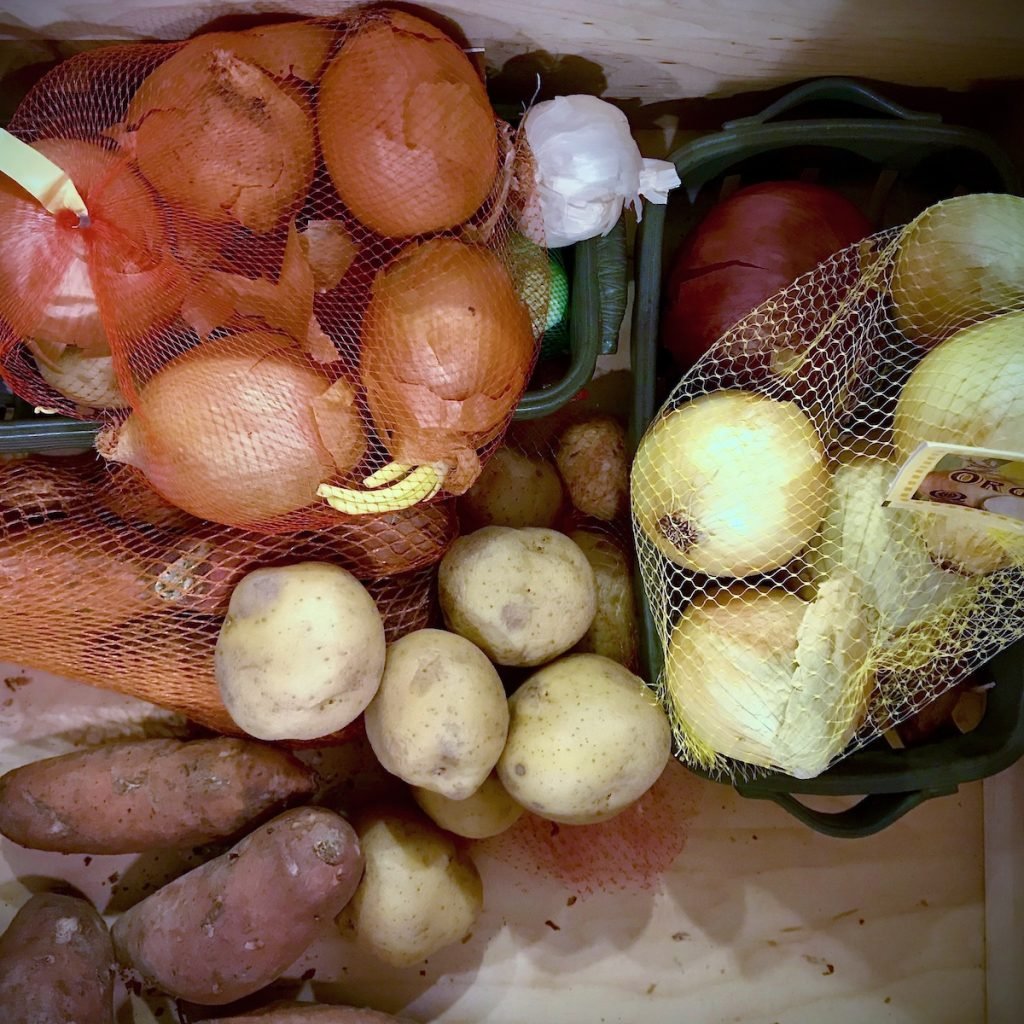
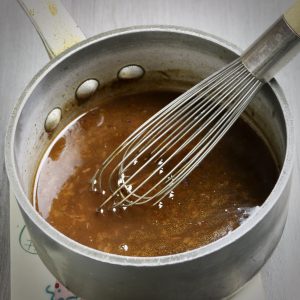
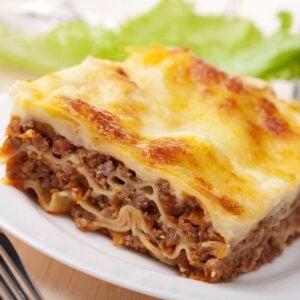
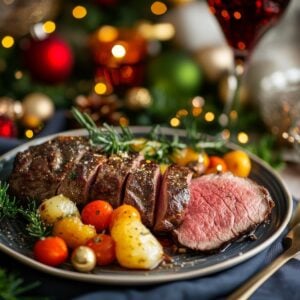
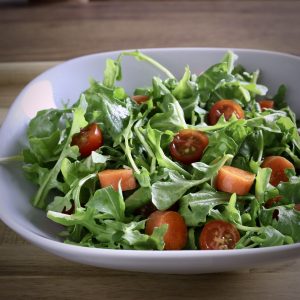
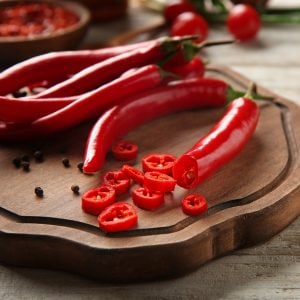
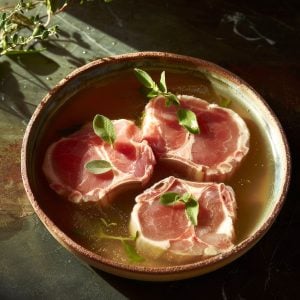
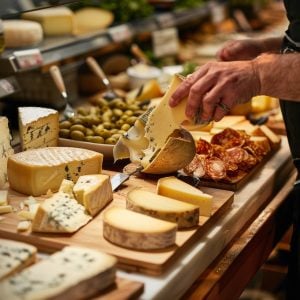
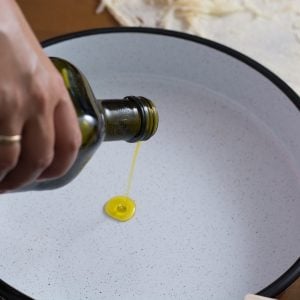
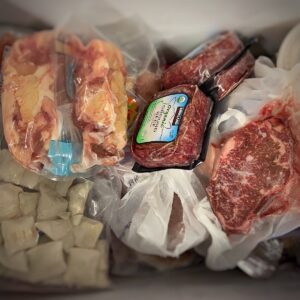


5 Responses
Helpful article but it still doesn’t really address my issue. Everybody agrees you shouldn’t store onions and potatoes together. But nobody says HOW far apart is enough. I’m close to finishing a pantry and and need to decide HOW far apart my potatoes need to be from my onions….inches? Feet? How close? How far?
Store potatoes and onions at least a few feet apart in your pantry. Onions release gases that cause potatoes to sprout, while potatoes emit moisture that can spoil onions. Keep both in cool, dry, and well-ventilated areas, but never together. Use separate containers or shelves to extend freshness and prevent premature spoilage. Avoid plastic bags for either.
Many flowers are also sensitive to ethylene gas – The typical grocery store location of cut flowers next to the fruits and vegetables significantly shortens the life span of flowers. Costco is a great place to get flowers because in addition to having fantastic prices, they keep their flowers far away from fruits and veggies, usually at the opposite corner of the store .
That is so true Rose. I find the flowers over by the clothing and pharmacy products.
I’m not satisfied with the explanation that “they both emit moisture.” If that’s the case, why aren’t the rules of thumb “don’t store potatoes with potatoes” and “don’t store onions with onions”? It does seem like there is an interaction between stored onions and potatoes, but moisture cannot be the whole story. I do get that ventilation is my friend, though.